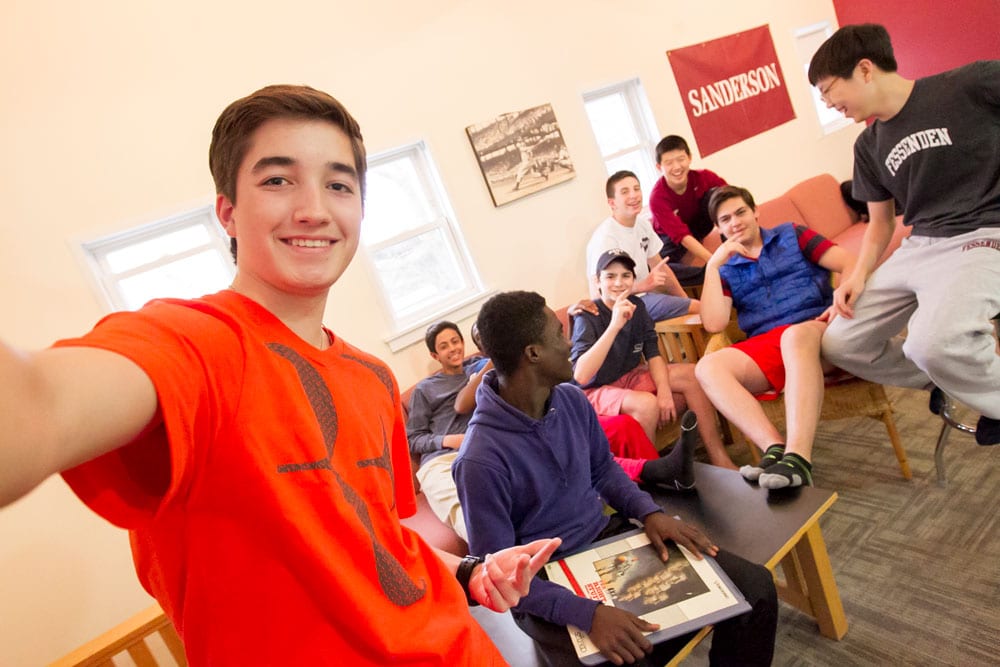Independent or private schools have a distinct advantage over public schools in at least one key area of curriculum: character education. Character education is an intentional and purposeful focus on helping children develop positive qualities and values. It’s about encouraging them to do the right thing even when no one is looking. While the definition of the “right thing” may be debatable in certain circumstances, we believe some qualities are universally important to youth development. Many private and boarding schools focus on a few key values which drive their character development initiatives. (At Fessenden, our focus has been on honesty, compassion, and respect for more than 120 years.)
Why Character Education is Important
Why does Fessenden include character development as an integral part of our curriculum? Character education in schools is important because it develops the whole child, not just academic ability.Understanding how to be a good friend, express gratitude, and give back to others are qualities that will affect a boy throughout his entire life–as much as his ability to calculate percentages or structure a persuasive essay. In addition, because we’re not bound to rigid state testing requirements, we have the freedom to spend classroom time on activities whose core objective is to develop character. We believe we’re nurturing compassionate, engaged young men as well as intelligent and competent learners.

What Character Education Looks Like in Schools
What is character education in schools? At Fessenden, it’s a blend of intentional programs, daily practices, and meaningful experiences.
Character education includes community service opportunities–and a wide variety of them: from serving at local nonprofits, to singing to senior citizens at a local retirement home, to donating toys during the holidays, to everything in between. But for many private schools, service means serving the greater community (including those less fortunate) AND serving each other in small but meaningful ways.
Every school has different ways of recognizing positive behavior. One of the ways Fessenden does this is through “commendations.” Commendations are written acknowledgements of acts of kindness or service performed by a student or faculty/staff member. These notes are posted publicly throughout the school and remind the community of the small good deeds constantly performed by its members. They act as a visual reminder of the weight the school places on its core values of honesty, compassion, and respect.

Building Strong Character in the Digital Age
In this age of “selfies” and social media, we find that a focus on character helps boys navigate the online world. We remind them that everything they do and experience is preserved somewhere online. We teach them to be thoughtful about who they are and how they may be perceived and to strive to ensure their digital footprint reflects their kindness to others. Social media actually acts as positive reinforcement.
While many independent schools do an excellent job fostering students of strong character, a single-sex environment can bring character education to the next level. In an all-boys atmosphere, boys tend to be more willing to express their vulnerabilities. Because they’re not concerned about or comparing themselves to members of the opposite sex, they’re often more open about showing their appreciation and acknowledging when they’ve experienced an act of compassion from another student. They’re more emotionally available, and a supportive community of faculty and staff lets them know they’re safe to stretch–both academically and emotionally.

A Lasting Impact
As boys grow into young men, the lessons of our character education curriculum stay with them. They leave Fessenden with a “moral vocabulary” that guides them through their academic careers and personal lives. Character education isn’t just a vital part of many private schools’ curricula; it’s a way of nurturing engaged, selfless, and kind community members.
See how Fessenden’s character education program helps boys grow into thoughtful, confident leaders. Apply to Fessenden today to see that impact in real life.
Read On

The Secret ‘In’ to Your Son’s World

How to Teach Your Son Good Character When His Middle School Won’t


